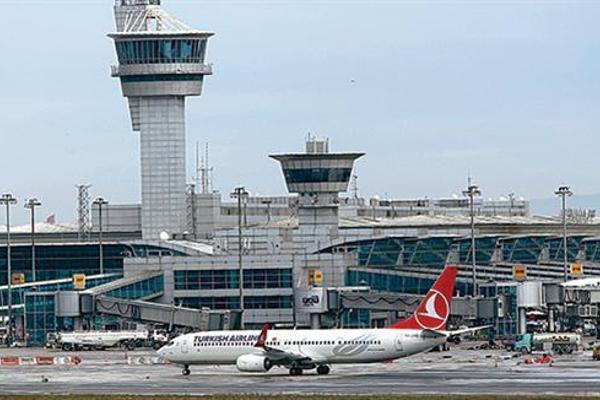Number of wealthy Turks seeking economic citizenship overseas surges over last three years
ISTANBUL - Anadolu Agency


REUTERS Photo
The number of high net-worth Turkish individuals looking for a second passport through investment has increased 100 percent over the last three years, a recent report has revealed.What is known as “economic citizenship” or “investment immigration” happens when a country gives citizenship to an individual in return for bringing business or purchasing real estate in that country.
According to Tolga Habalı, director of Henley & Partners Turkey, an international company that advises clients on the best places to invest and get a passport, second citizenship is a growing need.
“The world has experienced globalization of goods and services as well as the globalization of capital. Today we have seen the globalization of human beings which makes second citizenship a must,” Habalı told Anadolu Agency.
Habalı said that, according to Henley & Partners’ (H&P) index, applications for second-citizenship programs increased 100 percent in Turkey over the last three years.
The programs are aimed at wealthy individuals and families who want to secure themselves and enjoy freedom of travel, tax benefits and investments and business opportunities in offshore markets.
According to Habalı, the motivations of individuals in Turkey are no different. “Consequently, it is a big gain to create alternatives in every aspect,” he said.
Visa-free travel has been shown as the key reason for the increasing number of applications for citizenship by investment programs.
Experts across the world also say instability and security issues are key factors motivating people to get citizenship by investment.
Due to wars in both Iraq and Syria, there is concern over increasing crime, terrorism, foreign fighters and other extremist organizations both in Turkey and Europe.
More than one million refugees arrived in Europe last year, fleeing Syria, Iraq and several parts of Africa.
Released by Arton Capital, a global financial advisory firm for investments, a 2014 report said around 60 percent of all wealthy second-citizenship applicants come from countries in the Middle East.
Malta ‘quite popular’
According to Habalı, countries which legally have economic citizenship programs are Malta, Greek Cyprus and Austria, as well as Antigua and Barbuda, St Kitts and Nevis, Dominica, Grenada and St Lucia in the Caribbean.
“Malta, Antigua, and Dominica are the most popular countries among citizenship-by-investment programs. But the mobility from Turkey has mostly turned to Malta recently,” Habalı said.
He said that Malta - an EU member - is the most demanded country among Turks “as Maltese citizenship gives you the right to live and work anywhere in the European Union and to travel visa-free to the United States.”
But the cost of a Maltese passport is over $1.55 million plus fees, according to H&P. The cost varies from company to company.
By far the cheapest deal for citizenship is on the tiny Caribbean island of Dominica, which requires making an economic contribution to the country, according to Habalı.
However, Habalı said that contrary to general belief, many countries like Canada, the U.S., the U.K., Spain and Portugal do not offer citizenship by investment programs.
“We need to make a distinction here. The aforementioned countries have only immigrant investor programs offering applicants immediate permanent resident status, citizenship, or a temporary residence permit.”
“You can only get citizenship [from these countries] if you receive a migration and residence permit or live in those countries for many years,” he said.
To be a citizen of Canada, a physical presence is required.
According to the Canadian Citizenship Act, after you get a migration and residence permit, you have to live for four years (1,460 days) out of six years for citizenship eligibility while the U.S. requires five years. “An economic-citizenship program is different than those programs. You can enjoy the second passport opportunity with no residency requirements,” Habalı said.
However, passports for sale have also raised security concerns among European Union member states.
The 2014 Arton Capital report shows that the average net worth of a second-citizenship applicant is well above the global average for wealthy individuals.
Applicants have an average net worth of $205 million, compared to the global “ultra-high net worth” average of $135 million, said the report.
